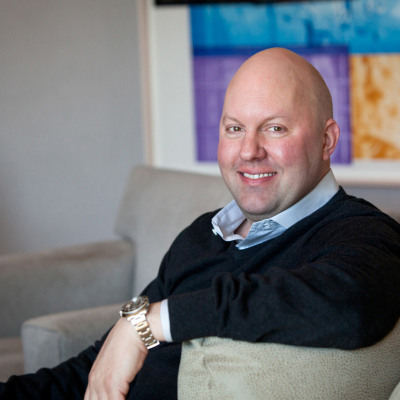The role of Academia in the startup world is a topic that interests many of us (in fact, it should be of interest to any researcher, even if you’re not planning to build a company yourself). In this podcast, Marc Andreessen talks about this same topic. Given that Marc is the co-founder and general partner of the very well-known venture capital firm Andreessen Horowitz and creator of two billion-dollar companies (one of them being Netscape, which I guess it sounds familiar to all of you), it’s no surprise I recommend you to listen to his thoughts on the interrelationship between academia and startups.
What you may not know (at least I didn’t) is that Netscape itself was the product of a rejected NSF grant. It turns out that the development of Netscape predecessor, Mosaic, was funded with research grants. Given the success of the product, they asked for additional money but NSF declined. As Marc says, NSF was right to reject the new proposal since it was not really a research proposal but a request to get funding for building a customer support team for Mosaic. And this was not NSF business to fund. Still, the consequence was that Marc departed from Academia and built a billion dollar company on his own.
We could discuss forever whether government grants should also cover product development and not “pure” research proposals (the situation has not improved much since then, industrialization of research tools is still a tricky thing to do, and typically, not well regarded by many academics) but this is clearly an example of huge missed opportunity for an academic world always looking for resources to continue operating (without increasing student fees).
In fact, in the podcast, Marc explains how CS departments couldn’t care less about the practical application of what they were working on but that, fortunately, he feels this has changed a lot and now have a much bigger focus on the practical impact on industry. Beyond starting companies this can also be achieved by keeping close links with industry (and with past students working there that can mentor new students and advise the department on current trends companies are especially interested in).
Other topics covered in the podcast are CS education in high school, the potential of CS as a key disruptive factor in many other fields (biology, entertainment,…) and making sure engineers are also taught business skills during their degree:
Engineers with business skills hiring MBAs for marketing/sales tasks are much more successful than MBAs with an idea looking for an engineer to implement it
The podcast was part of the Academic Roundtable 2015 exploring how academics and researchers can leverage their own entrepreneurial strengths, and find ways to better collaborate with the commercial tech industry. The rest of the talks of the event can be watched on that same page.







